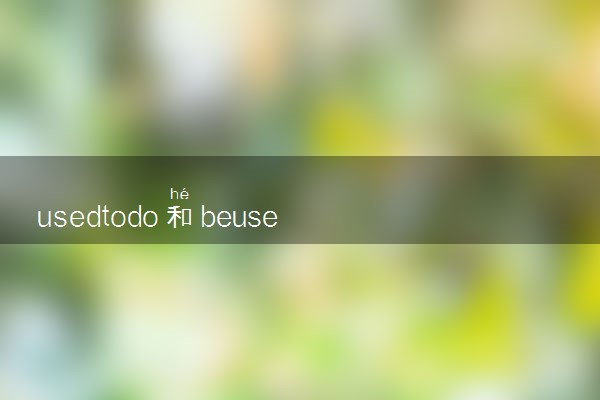be uesd to doing和used to的区别在于含义不同、用法不同、侧重点不同。be used to doing:习惯于……;used to do:过去常常做某事;be used to doing /n. 表示“习惯于”某一客观事实或状态,不强调动作,to是介词,后面接名词或动名词。

usedtodo和beusedtodoing有什么区别
used to是情态动词,后接动词原形
1.used to do sth. 过去常常做某事 (现已不做)
肯定句:主语+ used to do
否定句:主语+ didn't + use to do
一般疑问句:Did+主语+use to do
特殊疑问句:What + did+主语+use to do?
His father used to smoke.
他爸爸之前经常吸烟。
→His father didn't use to smoke.
→Did his father use to smoke?
→What did his father use to do?
2.be used to doing sth. 习惯做某事
He is used to living alone.
他习惯一个人住。
They are used to listening to English songs.
他们习惯了听英文歌。
He is used to eating meat.
他习惯吃肉了。
usedtodo例句
He seemed to shrink into himself as he used to do .
他看起来和过去一样,做什么事总是小心翼翼。
Many volunteers are used to doing difficult or important work .
许多义务工作者惯于干艰巨而重要的工作。
Parents have to do much less for their children today than they used to do , and home has become much less of a workshop .
今天做父母的不必象以往那样为他们的孩子做那么多事情了,而家庭已远远不象一个作坊了。
It tells us what is / are used to do an action
它告诉我们什麽被使用去做一个动作。